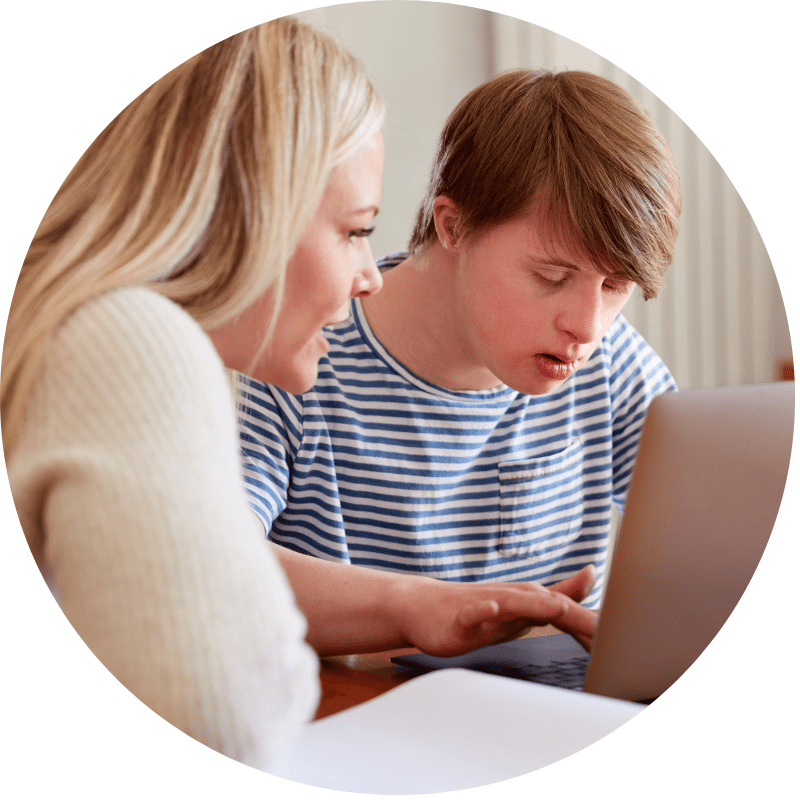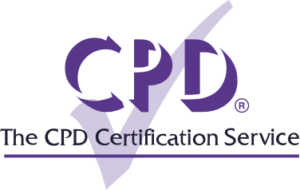In this SEND Workers CPD Guide
Why do SEND Workers need CPD?

Special Educational Needs and Disabilities (SEND) is a term used in education to describe the needs of children who require additional support due to a learning difficulty or disability. These needs can include physical, sensory, cognitive, emotional or behavioural challenges that may affect a child’s ability to learn and participate in school activities.
A SEND worker is someone who helps children and young people with special educational needs and disabilities to access support and services. They work in schools, colleges and other settings to ensure that children and young people with SEND receive appropriate education and care.
What our customers have to say
Dan King
Mobilisation, Training & Performance Manager

Sophie Aiken
HR Manager

Harriet Lee
Retail Recruitment Manager

What CPD courses do SEND Workers need?
Working in the education sector, you will find that there are multiple pieces of legislation and guidance to stay up to date with. CPD courses are a great way of staying on top of this, teaching the key aspects of legislation in a digestible manner. They also teach the relevant and latest skills and techniques to help you support children with SEND.
Some key CPD courses that we provide for SEND workers include:
Understanding Bullying – this course covers everything you need to know about bullying, from what it is, why it happens, the types of bullying, how to prevent bullying, how to support those bullying and being bullied, right through to supporting parents and making sure your anti-bullying policy is up to date.
ADHD Awareness – this course will help you to understand ADHD better. It will look at the possible factors that could cause a child to have ADHD, the assessment that children can have if it is suspected they have ADHD and the support for them and their family after a diagnosis.
Autism Awareness – this Autism Awareness course will explore the autistic spectrum and look in detail at the different types of autism. The course covers the potential causes of autism and the misconceptions that people have about the causes. Finally, we explore how autism can affect learning and the steps that can be put into place to help children in education.
Child Bereavement – this course will cover the topics of grief and bereavement, with an overall understanding of how to identify a bereaved child. You will explore how children understand and respond to loss, particularly in different age groups. The different factors that affect bereavement will be explored, including how the type of death can impact the child’s response.
Child Development – this course will give you greater insight into child development from conception through to 12 years old, including key developmental milestones for each age. You will also learn why a good level of development is so important in helping shape young people, as well as what can happen if a child does not have good levels of development and what the implications can be later in life.
Child Neglect Awareness – this course will highlight what to do if you suspect a child is at risk of neglect and how to report it. You will also consider why children may never disclose that they are being neglected or abused. Our Child Neglect Awareness course will also outline the impacts of child neglect long term.
Child Sexual Exploitation – it is important that anyone who works with children is aware of what child sexual exploitation is and how to notice that a child could be at risk of sexual exploitation. On completion of the course, you will feel you have more knowledge on child sexual exploitation and how to look after children that are in your care.
Children’s Mental Health – it is important for people who work with children to know how they can support children who have mental health difficulties. This Children’s Mental Health course will give you an insight into the different types of mental health difficulties common in children and how to help young people through these.
Dyslexia Awareness – in this course you will gain a greater understanding of what dyslexia is and how it can affect a child in their learning. You will also gain knowledge on how testing for dyslexia is done and how a child with dyslexia can be supported in the classroom. This course is suitable for those who work in education and for parents and guardians.
Dyspraxia Awareness – this course is designed to provide helpful information and guidance for those who live with, work with and support children and young people with dyspraxia, and how it can affect them as they go into adult life. You will learn about the different types of dyspraxia, as well as the signs and symptoms within different age groups.
Safeguarding Children Level 2 – this course is perfect for anyone who works around children as it is important to have a detailed knowledge of how to safeguard them from harm. The units cover all pieces of legislation that relate to safeguarding children as well as also looking at the types of abuse a child can suffer.
Supporting Children with Learning Difficulties and Disabilities – this course will further develop your knowledge, and it will cover how safeguarding children with disabilities and learning difficulties could impact you and them if it is not done properly and thoroughly.
Supporting Children with Speech, Language and Communication – in this course you will be introduced to the importance of speech, language and communication, how we use them, the definitions of speech, language and communication and how they work together. The course will cover why it is important to know the typical language milestones a child will reach and each language milestone for each stage in a child’s life from birth to 10 years old.
Download our CPD trackerA guide to CPD for SEND Workers
To become a SEND worker, you typically need a relevant qualification or experience working with individuals with special needs. Some common qualifications include a Level 2 or 3 Certificate in Supporting Teaching and Learning in Schools, a Level 3 Diploma in Specialist Support for Teaching and Learning in Schools, or a degree in a related field. You may also need to undergo disclosure and barring service checks before being hired. A SEND worker should possess qualities such as patience, empathy, communication skills, problem-solving abilities, flexibility, and an understanding of the needs of individuals with disabilities.
Continuous Professional Development (CPD) is the process of continuing learning when you have already begun work in the field. This is crucial for a SEND worker because they must keep up to date with any changes in the education sector. It is important for SEND workers to stay up to date with the latest research, techniques and best practices in their field to ensure that they can support children with SEND to the best of their ability. It helps them improve their skills and knowledge, stay current with changing policies and regulations, and ultimately provide better support and services to individuals with special educational needs and disabilities. Additionally, CPD can help SEND workers enhance their career prospects and expertise in the field.
CPD certificates
All of our CPD courses will result in you receiving a CPD certificate when you successfully complete the course. All of our courses are accredited by the relevant industry regulators so that you can be sure that you are learning accurate and up-to-date information. You should keep your CPD certificate safe so that you can show your employer or regulator the learning that you have completed.
Logging CPD hours
In many industries, regulators and employers ask for a specific number of hours to be spent on CPD training each year. To stay abreast of this, we advise you to keep a running log of CPD hours (which is the time that you spend on any CPD training activity). That way you can easily track the amount of training that you are completing and whether you are on track to meet your required total number of CPD hours.
Keeping CPD evidence
We advise all of our students to keep evidence of the CPD training activity that they complete. This can be used, along with your logged hours of CPD, to show as evidence of the training that you have completed. You may wish to create a CPD training portfolio which can be home to all of your CPD evidence.
Some types of evidence you could include are:
- Copies of worksheets.
- Titles of books or journals that you have read.
- CPD certificates.
- Attendance registers of conferences or webinars.
- CPD logged hours.
- Client or colleague feedback.
Renewing CPD certificates
Your CPD certificate must be renewed every two years to keep up to date with changes in the industry. The education and childcare sector have ongoing updates to legislation and guidance that you must stay abreast of to ensure that you are practising safely and effectively to support children with SEND. To renew your CPD certificate you can simply complete a refresher of your chosen CPD course with us.
























